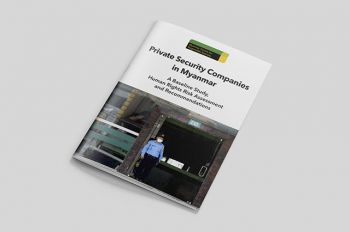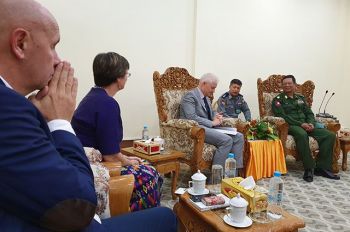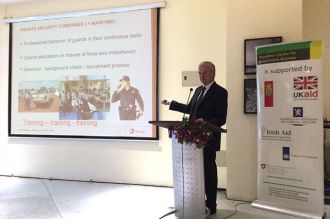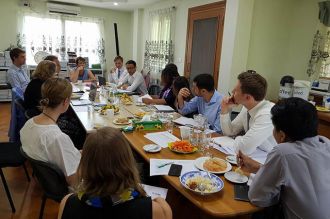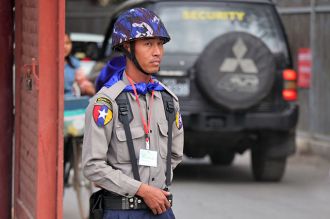Private Security Sector
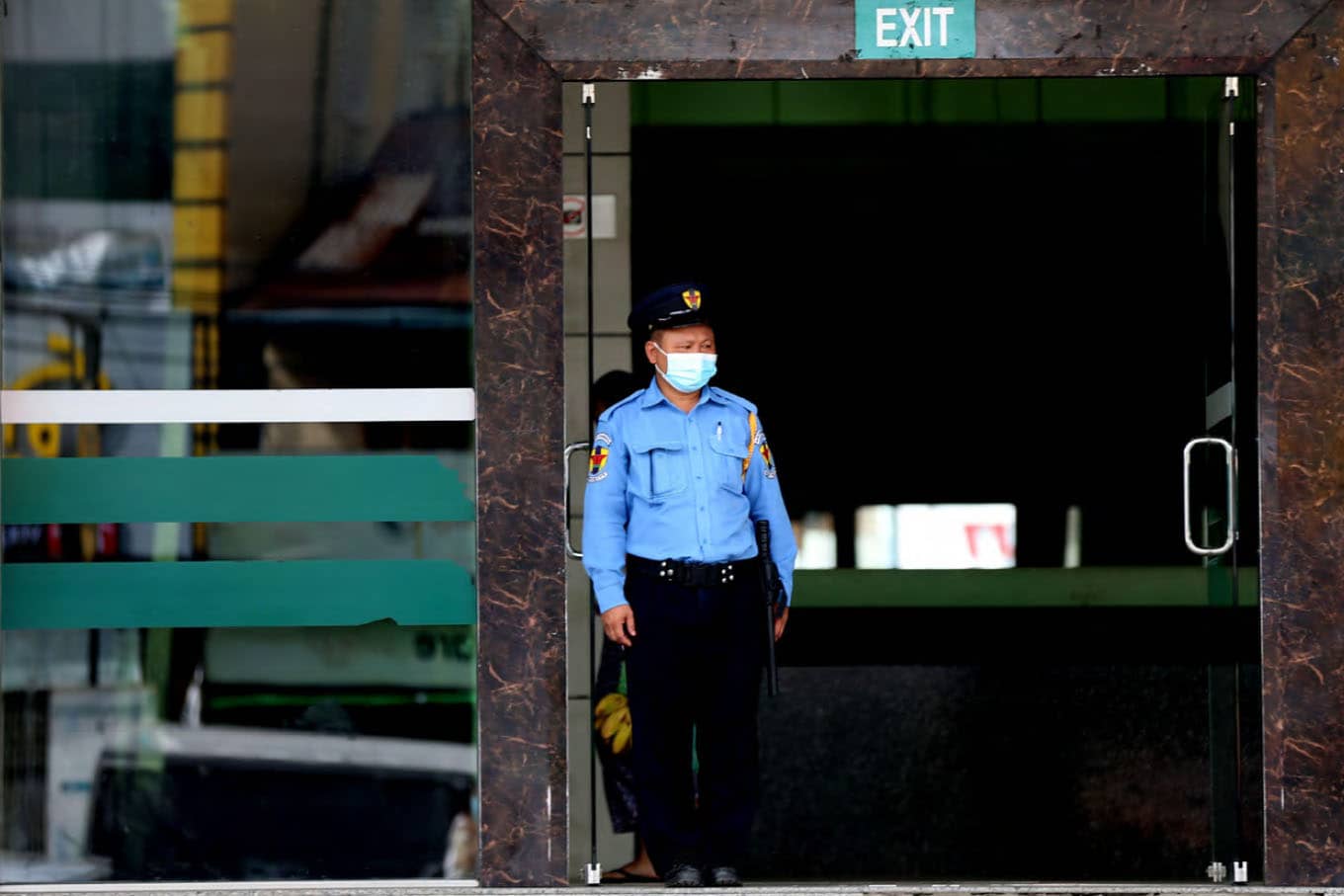
MCRB’s work on the Private Security Sector grew out of work on the extractive sector and in particular the Sector Wide Impact Assessments on Oil & Gas (2014) and Mining (2017).
The Oil and Gas SWIA identified a role in Myanmar for international initiatives and standards such as the Voluntary Principles on Security and Human Rights.
In 2018, an In-country Working group on the Voluntary Principles was established, with MCRB as Secretariat. In 2019, this noted the possible emergence of a new regulatory framework for the private security industry, starting with the establishment of a ‘Security Oversight Committee’ on which the Working Group engaged with the Home Ministry in November 2019. To inform further advocacy, the Working Group requested MCRB to conduct a Baseline Assessment of Private Security Companies to summarise the private security value chain and ecosystem including the role played by regulation, and by civil society stakeholders.
The assessment was published in February 2022. Additional support was provided by the Voluntary Principles Association. A Chinese translation has been provided by Kunming South Asia & Southeast Asia International Logistics Research Institute (SSILR).
Although not a full sector-wide impact assessment (SWIA), the report consists of a Human Rights Risk Assessment (HRRA) based on interviews conducted primarily in the second half of 2020. Field visits were not possible due to the COVID-19 pandemic. Before publication, the assessment was updated to reflect changes in the security and human rights operating environment for companies since the February 2021 military coup. This was the first published assessment of Private Security Companies (PSCs) in Myanmar.
This was originally intended to serve as a generic HRRA to inform Private Security Companies about the human rights risks in various contexts in Myanmar. Some of the human rights risks assessed are those which companies seeking membership and certification under the International Code of Conduct Association (ICoCA) were required to complete on issues such as use of force; detention; apprehending persons; identification and registration; weapons; personnel suitability; grievance mechanisms; torture or other cruel, inhuman or degrading treatment or punishment; sexual exploitation and gender-based violence; trafficking; prohibition of slavery and forced labour; child labour and discrimination.
Additionally, the assessment covers other risks important in the Myanmar context and raised by stakeholders, including militarization of investment projects in contested areas; the risk of deputation of PSCs; labour rights; and relations with communities. Data protection and privacy risks connected to PSCs are also assessed; the assessment contains the first analysis of regulation and responsible business practice concerning use by companies in Myanmar of closed-circuit TV (CCTV).
The report contains recommendations on avoiding and mitigating these human rights risks. While primarily targeted at specialist PSCs, the risks identified are also relevant for companies that manage their security in-house – such as banks, shopping malls – or client organisations that contract PSCs to do so, which includes companies, UN and diplomatic missions. The findings and recommendations contributed to MCRB’s dialogue with companies, the Private Security Services Association and other interested stakeholders about heightened human rights due diligence in Myanmar.
In 2019, MCRB became a civil society member of ICoCA the responsible security association. As of September 2024, two private security companies active in Myanmar (Exera, and IDG) are company members of ICoCA.
Information about MCRB’s activity in the Private Security Companies sector during the period 2018-2024:
MCRB Report on Private Security Companies in Myanmar
Myanmar Centre for Responsible Business (MCRB) has published a report on ‘Private Security Companies in Myanmar: A Baseline Study, Human Rights Risk Assessment and Recommendations’.
Members of the Myanmar VPSHR Steering Committee meet the Deputy Home Minister
On 22 Nov 2019, members of the Myanmar In-Country Steering Committee on the Voluntary Principles for Security and Human Rights (VPSHR) made an introductory call on the Myanmar Deputy Minister of Home Affairs.
Awareness-Raising Workshops Held in Yangon and Naypyidaw on the Voluntary Principles on Security and Human Rights (VPSHR)
Following on from the recommendations of the Scoping Report and the decision of the 18 May Myanmar Steering Committee of the VPSHR, two half-day awareness-raising workshops about the VPSHR and how they could be useful for Myanmar were held in Naypyidaw.
Steering Committee for the Voluntary Principles on Security and Human Rights Myanmar In-Country Working Group meets for the first time
The inaugural Steering Committee meeting of the Voluntary Principles on Security and Human Rights (VPSHR) Myanmar In-Country Working Group was held at MCRB on 18 May 2018, co-chaired by the UK Embassy and TOTAL.
Discussion of the Voluntary Principles on Security and Human Rights
MCRB and Peace Nexus co-hosted a discussion on the potential for establishing an In-country Pilot Implementation Group for the Voluntary Principles initiative and its potential agenda and participation.
 English
English မြန်မာ
မြန်မာ မြန်မာ (unicode)
မြန်မာ (unicode)

